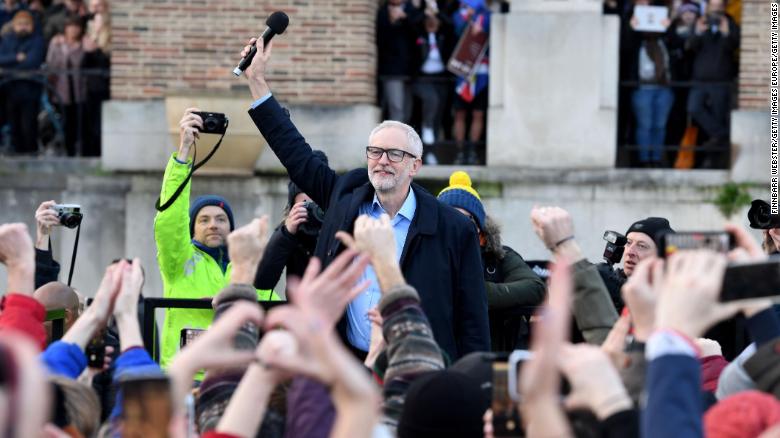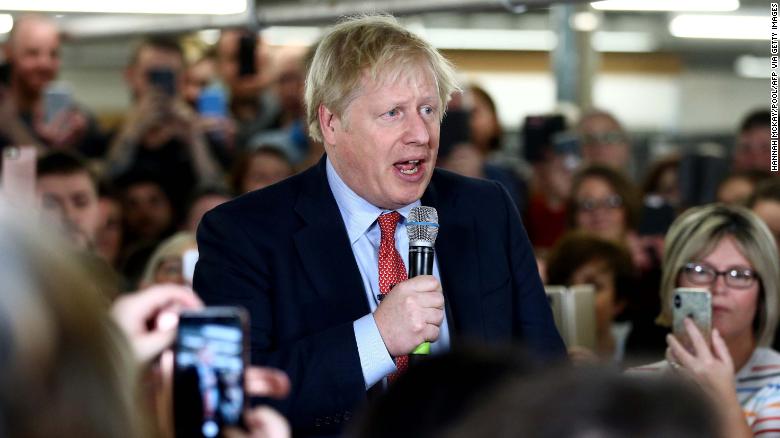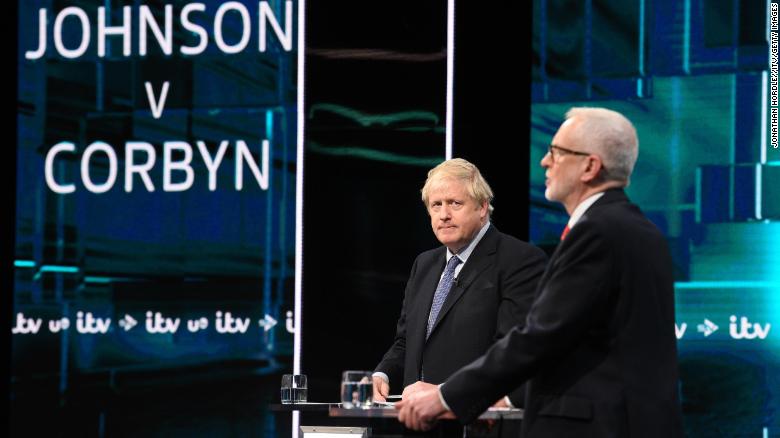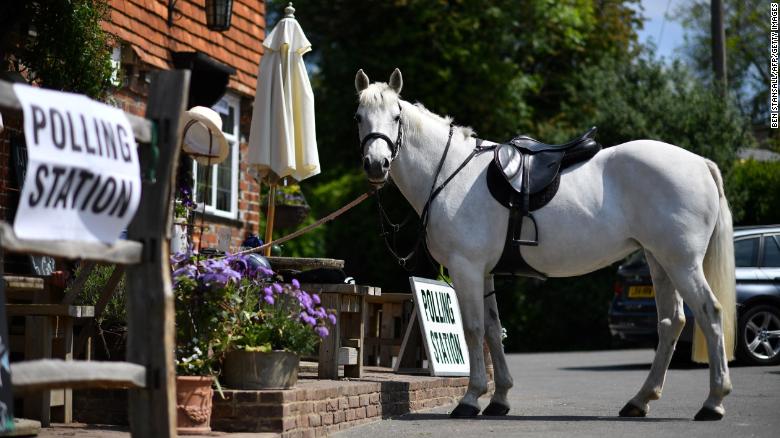Voters in the United Kingdom will shuffle through the doors of their old schools, churches and village halls on Thursday, casting their votes in the country’s third general election in less than five years.
It isn’t hyperbole to say that this poll comes at a critical time for the UK; a country whose position in the world is in flux, and whose future is far from certain.
Brits have been confronted with two drastically different visions for what comes next, and must decide between two very different men to lead them there.
Brexit, the all-consuming political behemoth that has brought the country to a standstill since 2016, has dominated discussions during the six-week campaign.
But other issues such as healthcare, climate change, taxes and social care have also been center stage, and disputes between Prime Minister Boris Johnson’s Conservatives and Jeremy Corbyn’s opposition Labour Party have been heated.
By Friday morning, it should become clear which side will form Britain’s next government.
Why is an election happening now?
In a word: Brexit.
Since former Prime Minister Theresa May’s disastrous gamble on a snap election in 2017 deprived her of a working majority in the House of Commons, Britain’s Parliament has been at a political standstill.
That result prevented May from passing her Brexit deal three times and dealt Johnson a series of defeats over his own Brexit strategy.
The next election was not due to take place until 2022.
But Johnson came to the same conclusion as May — that the only way out of the impasse was to hold an early vote in an attempt to seek a parliamentary majority in order to enact his Brexit plan.
Opposition lawmakers backed his call after weeks of debate, and set the date of Britain’s first December election since 1923.

What’s happened during the campaign?
Candidates have dutifully appeared in a checklist of traditional election photo ops; they’ve read books to bored school children, piped campaign messages onto doughnuts and had babies thrust into their arms as they maneuver through crowds of supporters.
But in virtually every other way, the two major parties took significantly different approaches to the election.
Johnson attempted to hammer home his central message, repeating his slogan “Get Brexit Done” at every opportunity and claiming he would secure the UK’s withdrawal by January 31 if he wins a majority.
Opponents have pointed out, though, that even if he does pass his withdrawal deal through Parliament, more difficult negotiations over trade would ensue with the EU and the United States.
Johnson has limited his media appearances during the campaign and has faced criticism over his refusal to do a number of high-profile TV interviews.
Corbyn is offering a confirmatory referendum on a softer Brexit deal within six months if he wins power, but the Labour leader has spent much less time discussing the B-word on the campaign trail.
Instead, he’s focused on his ambitious domestic agenda, which promises an end to years of austerity and a number of funding increases.
He’s also put the UK’s National Health Service (NHS) at the center of the campaign, warning of the potential impact a UK-US trade deal might have on the service.

He’s pledged to renationalize Britain’s railways, water and energy companies, and to implement an increased tax on Britain’s highest earners.
But Corbyn has faced a rougher ride than he did in his energized 2017 campaign.
Meanwhile, two smaller parties — the anti-Brexit Liberal Democrats and Nigel Farage’s Brexit Party — started the campaign with respectable polling figures but have been squeezed by the big two blocs.
Who’s going to win?
Johnson liked his chances of winning enough to call the election, and pollsters have consistently given him a lead over Corbyn throughout the campaign.
The gap has narrowed slightly, but not enough to change most pundits’ predictions. But we’ve been here before.
The Conservatives were expected to win a landslide in 2017, but they lost seats.
They were expected to finish neck and neck with Labour in 2015, but earned a comfortable victory.

Adding to the uncertainty for Johnson is that anything other than an outright win could see him locked out of Downing Street.
Parties need at least 320 seats to command a majority in Parliament, and the Conservatives have few, if any, partners to help them out should they come up short.
Predicting British elections is a fool’s game, but most pundits agree that if the gap between Labour and the Conservatives ends up in the low-to-mid single digits, we could be in hung Parliament territory.
And a final projection from pollster YouGov on Tuesday concluded that the Tories’ lead had dropped significantly, giving a late boost to opposition parties hoping to oust Johnson.
OK, what’s a hung Parliament?
In the UK, voters don’t elect a prime minister directly. Instead, they elect a member of parliament (MP) to represent their local constituency.The leader of the party which wins a majority of the UK’s 650 constituencies automatically becomes Prime Minister.
But if there’s no majority, they need to look for help elsewhere. That’s the problem May was faced with when the 2017 election resulted in a hung Parliament.
She struck a deal with Northern Ireland’s Democratic Unionist Party (DUP) to prop up her minority government.
Johnson likely won’t have the same luxury, having burned his bridges with the DUP by putting a customs border in the Irish sea as part of his Brexit deal.
Parties can also form an official coalition, as David Cameron did with the Liberal Democrats in 2010.In the short-term, another hung Parliament would mean days of frantic negotiating as teams in both camps seek to find a path to power.
But Labour are the more natural bedfellows of virtually all opposition parties.
If they can get over the line with a so-called “rainbow” coalition of several different parties, a second Brexit referendum becomes very likely, as that’s also the ambition of the Scottish National Party (SNP) and the Liberal Democrats — who will be expected to finish as the third and fourth-biggest parties in Westminster at the end of the night.
SNP leader Nicola Sturgeon, Scotland’s first minister, branded Johnson the “greatest danger to Scotland of any Tory prime minister in modern times,” in an open letter.

Brexit has thrown the UK’s traditional electoral map up in the air; Conservatives are targeting traditional Labour areas which voted to leave the EU, while Labour and the Liberal Democrats are hoping to capitalize on support in areas further south that had a large remain vote.
That all means that results can still surprise, and a narrative of the night may not appear for some time.
British elections are traditionally in late spring, but since Brexit, political traditions have gone out of the window.
The necessity of this vote means it’s coming in December, for the first time in nearly a century.
Since it’s unprecedented in modern times, there’s no way of knowing what impact a December vote will have on turnout.
